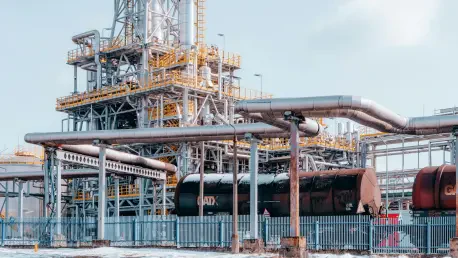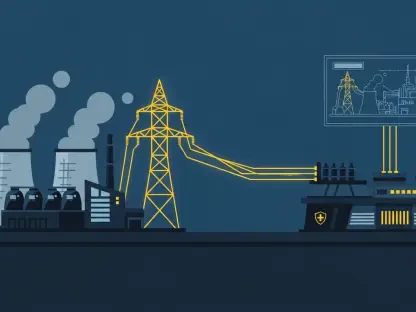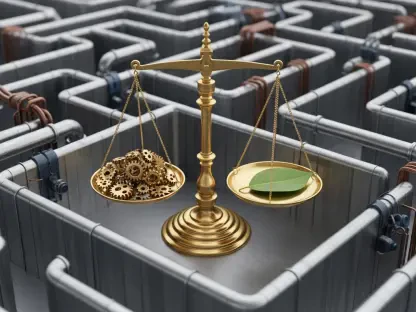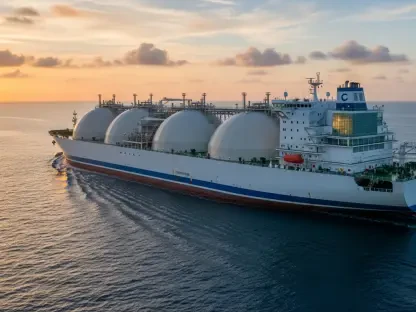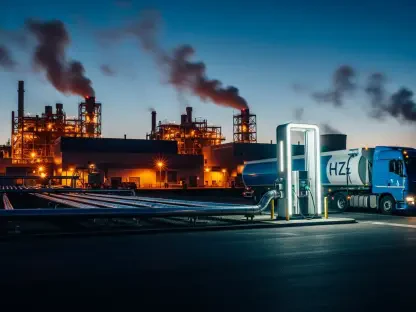Imagine a region at a critical energy crossroads, where the flow of oil could determine not just economic stability but also geopolitical alliances, and Central Europe, particularly Hungary, faces a pressing challenge. Can the Adriatic pipeline serve as a viable alternative to the long-standing reliance on Russian oil through the Druzhba pipeline? Amid technical disputes and mounting international pressure, this question has sparked heated debates among industry stakeholders, policymakers, and energy analysts. This roundup article gathers diverse opinions, insights, and perspectives from various sources to explore whether the Adriatic pipeline can truly reshape Hungary’s energy landscape.
Unpacking the Adriatic Pipeline Debate in Central Europe
Overview of the Central Issue
The core of the discussion revolves around a significant disagreement between Hungarian oil giant MOL and Croatian pipeline operator Janaf over the Adriatic pipeline’s capacity to meet the demands of refineries in Hungary and Slovakia. Reports indicate that MOL has raised concerns about the pipeline’s ability to sustain high-capacity oil flow over extended periods, casting doubt on its reliability as a full replacement for Russian supplies. On the other hand, Janaf insists that the infrastructure is ready to handle the region’s needs, creating a stark contrast in viewpoints that fuels uncertainty.
Potential as an Alternative Energy Route
Beyond the immediate dispute, many industry observers see the Adriatic pipeline as a potential lifeline for Central Europe to diversify away from the Russian Druzhba pipeline. With the European Union intensifying efforts to reduce dependency on Russian energy, the pipeline represents a strategic opportunity. However, opinions vary on whether it can realistically match the volume and consistency of current supplies, especially given the economic benefits tied to cheaper Russian crude.
Broader Implications for the Region
The stakes extend far beyond technical specifications, touching on energy security and political dynamics for Hungary and neighboring Slovakia. Some analysts argue that resolving this issue could set a precedent for other regional energy initiatives, while others caution that entrenched economic ties and geopolitical relationships may hinder progress. This roundup delves into these multifaceted perspectives to provide a comprehensive view of the challenges and possibilities ahead.
Diverse Perspectives on the Adriatic Pipeline Dispute
Technical Disparities: Doubts versus Assurances
A significant point of contention lies in the technical assessments of the Adriatic pipeline’s capabilities. Industry sources aligned with MOL highlight concerns over operational reliability, noting that tests have reportedly shown limitations in maintaining consistent high-capacity flow. These voices stress that without further validation, scaling up reliance on the pipeline poses risks to refinery operations in the region.
In contrast, other technical evaluations, echoing Janaf’s stance, assert that the pipeline is fully equipped to meet Central European demands. These perspectives emphasize that any issues during testing were due to specific operational adjustments rather than inherent flaws. This divide in technical opinion leaves room for skepticism among stakeholders about the pipeline’s immediate readiness.
Some independent industry watchers suggest that the lack of consensus stems from differing testing methodologies and interpretations of data. They advocate for standardized, transparent evaluations to bridge the gap between the conflicting claims, arguing that only through collaborative testing can a clear picture of capacity emerge.
Energy Dependency: The Russian Oil Conundrum
Hungary and Slovakia’s heavy reliance on Russian oil via the Druzhba pipeline remains a central theme in discussions. Energy policy analysts point out that MOL’s refineries, with a combined capacity of 14.2 million tons, depend significantly on this route for a steady supply of affordable Ural crude. This dependency is seen as a major barrier to transitioning to alternative sources like the Adriatic pipeline.
Economic considerations also play a pivotal role, as several financial experts note that Hungary benefits from taxing MOL’s operations, which are optimized for cheaper Russian oil. This fiscal advantage creates a reluctance to shift energy strategies, even under external pressures to diversify. The economic allure of maintaining the status quo often overshadows potential long-term security gains.
A smaller but vocal group of commentators argues that continuing this dependency carries substantial risks, especially given the EU’s broader push to sever energy ties with Moscow. They warn that without proactive diversification, Hungary could face vulnerabilities in the event of supply disruptions or escalating geopolitical tensions, urging a reevaluation of priorities.
Geopolitical Influences on Energy Decisions
Geopolitical pressures add another layer of complexity to the debate, with some international policy experts highlighting recent calls from U.S. leadership for Hungary to abandon Russian oil. This reflects a wider NATO agenda to bolster energy independence among allies, positioning the Adriatic pipeline as a critical piece of that strategy. Such external voices often frame the issue as a matter of security over economics.
Conversely, other geopolitical analysts point to Hungary’s historically close ties with Moscow as a complicating factor. They suggest that these political relationships influence energy decision-making, creating friction in adopting alternatives like the Adriatic route. This perspective underscores the challenge of aligning national interests with broader Western objectives.
A balanced view from regional think tanks questions whether international pressure can outweigh domestic economic and political incentives. These sources argue that while external advocacy for diversification is strong, the practicalities of implementation—coupled with internal resistance—may slow down any significant shift in Hungary’s energy policy.
Strategic Considerations: Security versus Economic Trade-offs
The strategic implications of the MOL-Janaf disagreement resonate across Central Europe, with many security analysts emphasizing the need for robust energy diversification. They view the Adriatic pipeline as a potential cornerstone for reducing regional vulnerabilities, provided technical hurdles are addressed. This camp prioritizes long-term stability over short-term financial gains.
On the economic front, other voices caution against underestimating the costs of transitioning to a new supply chain. They argue that while the pipeline offers a promising alternative, the financial burden of adaptation—combined with uncertainties about sustained capacity—could strain national budgets and refinery operations. This perspective calls for a cautious, phased approach to change.
A synthesis of strategic opinions suggests that the dispute could shape future energy frameworks in the region. Some industry leaders propose that resolving this issue might encourage investment in other diversification projects, while others warn that prolonged uncertainty could deter progress. The interplay of security and economic priorities remains a defining factor in the ongoing dialogue.
Key Takeaways from the Energy Debate
Summarizing the Range of Opinions
The roundup of perspectives reveals a deeply divided landscape on the Adriatic pipeline’s potential to replace Russian oil for Hungary. On one side, concerns about technical reliability and economic dependencies dominate, with stakeholders like MOL expressing hesitation. On the flip side, confidence in the pipeline’s readiness and the urgency of diversification are championed by Janaf and aligned observers, highlighting a pathway toward energy independence.
Comparing Conflicting Viewpoints
A clear divergence emerges between those prioritizing immediate operational concerns and others focused on long-term strategic benefits. While economic and geopolitical ties to Russian oil create resistance, the push from international allies and EU policies underscores the need for change. This tension between maintaining familiar systems and embracing new solutions defines much of the discourse.
Highlighting Areas of Agreement
Despite the differences, there is a shared recognition among all parties that energy security is paramount for Central Europe. Most agree that resolving technical uncertainties through independent assessments or collaborative efforts could pave the way for progress. This common ground offers a starting point for addressing the broader challenges at hand.
Reflecting on the Path Ahead
Looking back, the discussions surrounding the Adriatic pipeline illuminated the intricate balance Hungary must navigate between technical feasibility, economic realities, and geopolitical pressures. The diverse opinions gathered underscored a critical moment in Central Europe’s energy transition, where every decision carries significant implications.
Moving forward, stakeholders should consider actionable steps like commissioning neutral third-party evaluations to settle capacity disputes once and for all. Additionally, fostering dialogue through EU-mediated negotiations could help align national interests with regional goals. For those invested in this issue, staying informed about emerging energy policies and advocating for diversified supply chains will be crucial in shaping a resilient future.
